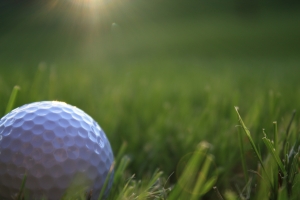This article is courtesy of PRWeb, please share your comments below…..
 Spine expert Dr. Kaixuan Liu with Atlantic Spine Center explains top 3 golfing-related back injuries and offers tips to prevent and treat them.
Spine expert Dr. Kaixuan Liu with Atlantic Spine Center explains top 3 golfing-related back injuries and offers tips to prevent and treat them.
The perennially popular sport of golf often comes with a high price tag on players’ lower backs as well as their wallets. But hitting the links doesn’t have to lead to back injuries if golfers take the right preventive measures, according to Kaixuan Liu, MD, PhD, founder and president of Atlantic Spine Center.
Research has repeatedly shown that the lower back is the most common site of injury among golfers. A 2007 study in the Journal of Chiropractic Medicine indicated that 15% to 34% of amateur golfers have suffered lower-back injuries, with more men sustaining these injuries than women. Indeed, the lower back accounted for 25% of all golf-related injuries over the previous year among study participants, more than any other body region.
“While golf is perceived as a low-risk sport, that’s certainly not the case when it comes to the lower back,” says Dr. Liu, who is fellowship-trained in minimally invasive spine surgery. “But the lower back is rarely the cause of the pain from golfing. Typically, abnormal movements or forces by other body parts force the back to do more than its share of work, overusing and abusing it until an injury occurs.”
Top 3 golfing-related back injuries
What are the most common golf-related back injuries? Dr. Liu explains the top 3:
* Muscle strains and sprains: These back injuries are usually mild and resolve within 2 to 4 weeks with rest, Dr. Liu says. But lingering muscle stiffness or range-of-motion problems can make it difficult to hit the links again quickly.
* Disc injury: In the spine, discs between the vertebrae act as shock absorbers to help the spine cope with compressive forces. The powerful rotation and extension motion required to swing a golf club – especially when done incorrectly – can tear these discs, resulting in dysfunction and pain in the lower back and legs.
* Degenerative arthritis: Like all joints, those in the lower back can be damaged and worn down by wear and tear, which is known as degenerative arthritis. Since the back often does the lion’s share of work swinging a golf club, Dr. Liu says, this problem can occur more frequently there.
Preventing and treating golf-related back problems
Since prevention is always better than the best cure, stopping back injuries before they start is the optimal strategy, Dr. Liu says. He offers these tips to avoid golf-related back problems:
* Warm up first: Getting to the tee, pulling out your driver and hitting the ball full-blast without warming up first is simply a bad idea, Dr. Liu says. Warm up before a round by slowly stretching the torso, shoulder and hip regions, as well as your hamstrings. One survey showed that more than 8 in 10 golfers spent less than 10 minutes warming up before a round, according to the American Orthopaedic Society for Sports Medicine (AOSSM).
* Don’t carry your own bag: Golf is already a pricey sport, but shell out a little more cash for a caddy, or use a golf cart to tote your clubs, Dr. Liu advises. Golfers who carry their own bags have twice the incidence of back, shoulder and ankle injuries as those who don’t, according to the AAOSM.
* Get help with your swing: Hiring a golf pro, even for a short consultation, is a smart move to prevent golf-related back injuries, Dr. Liu notes. “Golfers should aim for a smooth, rhythmic swing, since this results in less stress on the lower spine and fewer back injuries,” he says. “Sometimes, however, golfers can’t achieve a balanced swing on their own and need a golf pro to tweak their technique.”
Most lower back injuries resulting from golfing will feel better over a few days to a few weeks, Dr. Liu says. Self-treatment measures can include rest; heat and/or ice on the aching area; and anti-inflammatory over-the-counter pain relievers such as ibuprofen or naproxen. If pain or stiffness does not resolve after a few weeks, it’s time to visit a spine physician to determine what other treatment may be needed.
“Try to avoid playing golf again just after a lower back injury occurs – which is difficult advice for die-hard golfers,” Dr. Liu says. “After back pain subsides, take it slow and make sure to use preventive measures to stop another lower back injury from ruining your golf game.”
Atlantic Spine Center is a nationally recognized leader for endoscopic spine surgery with several locations in NJ and NYC. http://www.atlanticspinecenter.com, http://www.atlanticspinecenter.nyc
Kaixuan Liu, MD, is a board-certified physician who is fellowship-trained in minimally invasive spine surgery at Atlantic Spine Center.
